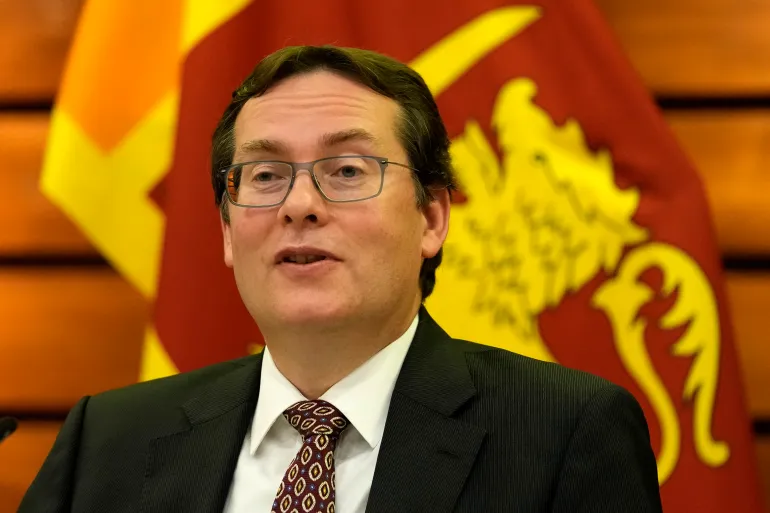The International Monetary Fund (IMF) has asserted that the economic situation in debt-stricken Sri Lanka has began to gradually improve following its worst economic crisis two years ago.
Inflation has dropped from a peak of 70 percent in 2022 to 5.9 percent in February even as the country’s economy expanded in the second half of last year following a year and a half of contraction, the IMF said on Friday.
Sri Lanka’s year-on-year economic expansion in the third quarter of 2023 was 1.6 percent, and in the fourth quarter 4.5 percent, the IMF said.
The economic crisis in early 2022 left Sri Lankans suffering from severe shortages of food, medicine, fuel and power, drawing strident protests that led to the removal of then-President Gotabaya Rajapaksa.
Africa Today News, New York recalls that the Indian Ocean island nation declared bankruptcy in April 2022 with more than $83bn in debt – more than half of it to foreign creditors.
Sri Lanka turned to the IMF for help to rescue the economy and secured a bailout package last year.
Read Also: It’s Time To Battle Food Insecurity, IMF Urges Nigeria
Under the current four-year bailout programme, the IMF is to disburse $2.9bn in tranches after biannual reviews of whether the country is imposing needed economic reforms.
The country has received two payments so far and also has received promises of debt forgiveness from major creditors like India, Japan and China. The government also is in talks with private creditors.
On Wednesday, the IMF said a team of its officials had reached an agreement with Sri Lankan authorities on the second review of economic reforms.
Once the agreement is approved by the IMF executive board, Sri Lanka would have access to the latest tranche of $337m, for a total so far of about $1bn.
In July 2022, then-Prime Minister Ranil Wickremesinghe was appointed as president.
Since then, he has managed to restore electricity, and shortages of essentials have largely abated. Sri Lanka’s currency has strengthened, and interest rates have fallen to about 10 percent.
However, Wickremesinghe faces public anger over heavy taxes and the high cost of living.
Despite improving economic indicators and an easing of the worst shortages, Sri Lankans have lost buying power due to high taxes and currency devaluation. Unemployment remains high as industries that collapsed at the height of the crisis have not yet returned.
